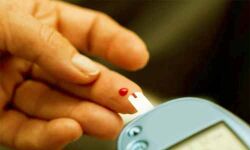- Home
- Medical news & Guidelines
- Anesthesiology
- Cardiology and CTVS
- Critical Care
- Dentistry
- Dermatology
- Diabetes and Endocrinology
- ENT
- Gastroenterology
- Medicine
- Nephrology
- Neurology
- Obstretics-Gynaecology
- Oncology
- Ophthalmology
- Orthopaedics
- Pediatrics-Neonatology
- Psychiatry
- Pulmonology
- Radiology
- Surgery
- Urology
- Laboratory Medicine
- Diet
- Nursing
- Paramedical
- Physiotherapy
- Health news
- Fact Check
- Bone Health Fact Check
- Brain Health Fact Check
- Cancer Related Fact Check
- Child Care Fact Check
- Dental and oral health fact check
- Diabetes and metabolic health fact check
- Diet and Nutrition Fact Check
- Eye and ENT Care Fact Check
- Fitness fact check
- Gut health fact check
- Heart health fact check
- Kidney health fact check
- Medical education fact check
- Men's health fact check
- Respiratory fact check
- Skin and hair care fact check
- Vaccine and Immunization fact check
- Women's health fact check
- AYUSH
- State News
- Andaman and Nicobar Islands
- Andhra Pradesh
- Arunachal Pradesh
- Assam
- Bihar
- Chandigarh
- Chattisgarh
- Dadra and Nagar Haveli
- Daman and Diu
- Delhi
- Goa
- Gujarat
- Haryana
- Himachal Pradesh
- Jammu & Kashmir
- Jharkhand
- Karnataka
- Kerala
- Ladakh
- Lakshadweep
- Madhya Pradesh
- Maharashtra
- Manipur
- Meghalaya
- Mizoram
- Nagaland
- Odisha
- Puducherry
- Punjab
- Rajasthan
- Sikkim
- Tamil Nadu
- Telangana
- Tripura
- Uttar Pradesh
- Uttrakhand
- West Bengal
- Medical Education
- Industry
Fasting blood sugar variability increases risk of all-cause mortality among women

A recent study by Karim Kohansal and team showed that among males fasting blood sugar variability only the conversion to type 2 diabetes (T2DM) was associated with an elevated risk of all-cause mortality, whereas in women, the impaired fasting sugar status whether incident, chronic, or converted to T2DM impacted the mortality.
The findings of this study were published in Cardiovascular Diabetology.
Fasting plasma sugar testing is frequently used in clinical practice to identify type 2 diabetes and pre-diabetes since it is less expensive and time-consuming than other methods and is readily accessible. There are notable sex disparities in the morbidity- and mortality-related consequences of T2DM, according to mounting research. In order to examine the sex-specific effects of short-term alterations in FPG status on the long-term risk of all-cause, CV, and cancer mortality in persons without T2DM at baseline, researchers employed pooled analysis of three significant cohort studies. Additionally, we wanted to investigate how short-term FPG alterations affected mortality occurrences in men versus women.
14,378 individuals (30–60 years old; 8272 women) from three population-based cohort studies, including Tehran Lipid and Glucose Study, Multi-Ethnic Study of Atherosclerosis, and Atherosclerosis Risk in Communities, made up the study population. Based on the roughly three-year changes in FPG status, subjects were divided into six groups: normal FPG (NFG) to NFG (reference category); NFG to impaired fasting glucose (IFG); NFG to T2DM; IFG to NFG; IFG to IFG; and IFG to T2DM. To estimate hazard ratios (HRs (95% CI)) for all-cause and cause-specific mortality events, multivariable stratified Cox regression with adjustments for age, body mass index (BMI), BMI-Change, smoking status, hypertension, and hypercholesterolemia was employed. For each category, estimated women-to-men HR ratios (RHRs) were calculated.
The key findings of this study were:
2,362 all-cause death occurrences were noted during the follow-up period.
In comparison to the NFG-NFG group, all FPG change categories in women, with the exception of IFG-NFG, were linked to a greater risk of all-cause death.
Additionally, women in the IFG-T2DM group had a higher risk of cardiovascular death. Additionally, researchers discovered that women in the NFG-IFG and IFG-IFG groups had a greater chance of dying from cancer.
However, only two groups of males with NFG-T2DM and IFG-T2DM were shown to have a greater risk of all-cause death.
In comparison to males, women with IFG-IFG had a 24% greater risk of all-cause death events.
Results were consistent with the main findings after further physical activity adjustment, eliminating T2DM up to six years after the survey period and early death events.
Reference:
Kohansal, K., Masrouri, S., Khalili, D., Ramezankhani, A., Azizi, F., Blaha, M. J., & Hadaegh, F. (2022). Changes in Fasting plasma glucose status and risk of mortality events in individuals without diabetes over two decades of Follow-up: a pooled cohort analysis. In Cardiovascular Diabetology (Vol. 21, Issue 1). Springer Science and Business Media LLC. https://doi.org/10.1186/s12933-022-01709-z
Neuroscience Masters graduate
Jacinthlyn Sylvia, a Neuroscience Master's graduate from Chennai has worked extensively in deciphering the neurobiology of cognition and motor control in aging. She also has spread-out exposure to Neurosurgery from her Bachelor’s. She is currently involved in active Neuro-Oncology research. She is an upcoming neuroscientist with a fiery passion for writing. Her news cover at Medical Dialogues feature recent discoveries and updates from the healthcare and biomedical research fields. She can be reached at editorial@medicaldialogues.in
Dr Kamal Kant Kohli-MBBS, DTCD- a chest specialist with more than 30 years of practice and a flair for writing clinical articles, Dr Kamal Kant Kohli joined Medical Dialogues as a Chief Editor of Medical News. Besides writing articles, as an editor, he proofreads and verifies all the medical content published on Medical Dialogues including those coming from journals, studies,medical conferences,guidelines etc. Email: drkohli@medicaldialogues.in. Contact no. 011-43720751


